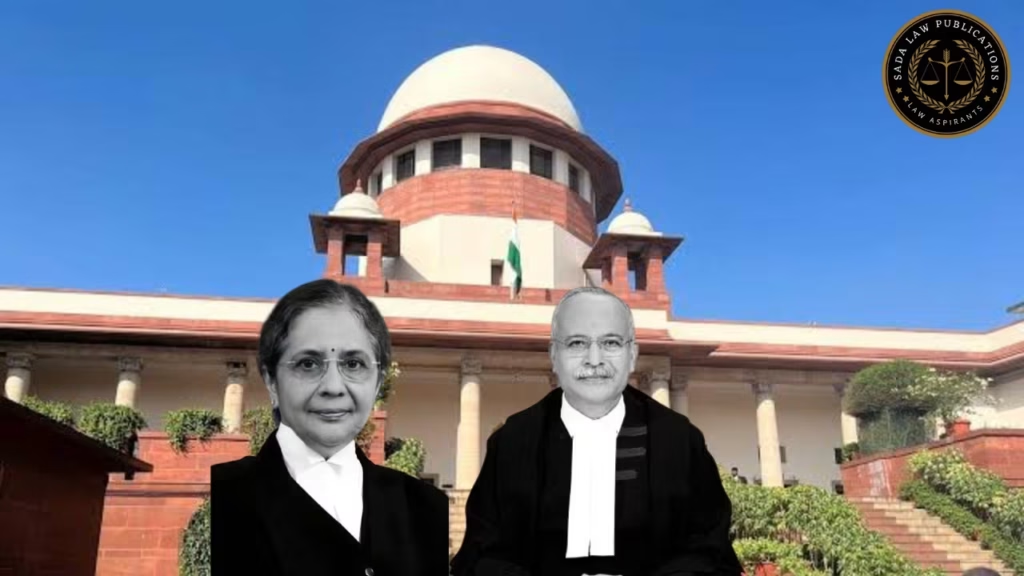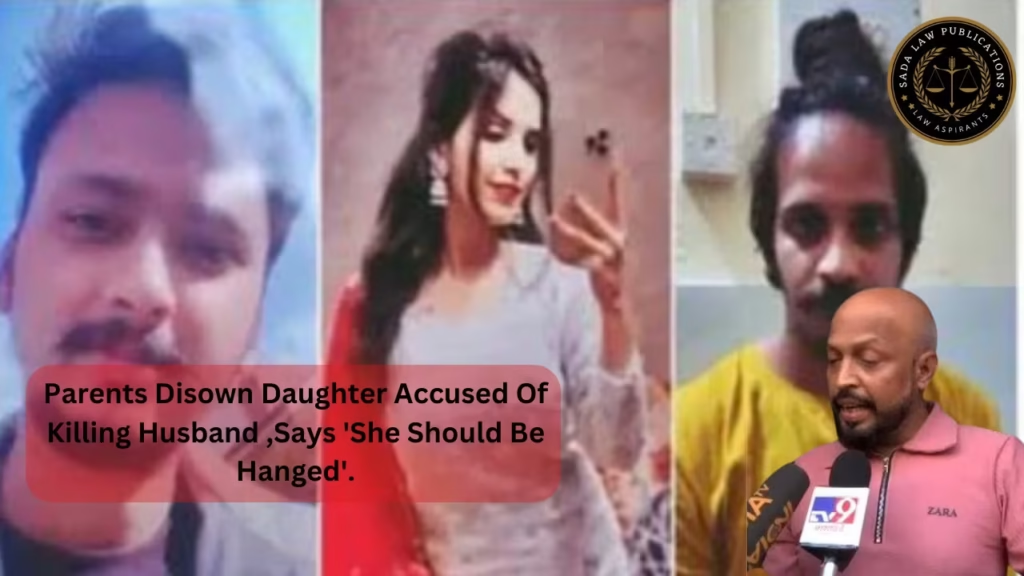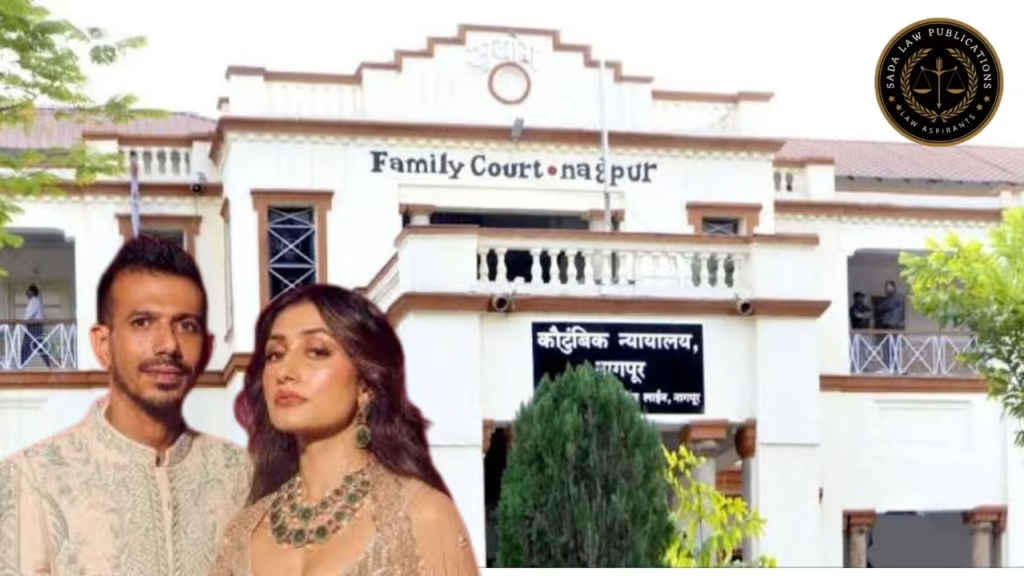Senior Advocate Can’t Appear In Supreme Court Without An AOR; Non-AORs Can Argue Only If Instructed By An AOR : Supreme Court
Trending Today Senior Advocate Can’t Appear In Supreme Court Without An AOR; Non-AORs Can Argue Only If Instructed By An AOR : Supreme Court BCI Has No Business Interfering With Legal Education’ : Supreme Court Dismisses Plea Against HC Allowing 2 Convicts To Attend Law School Virtually Merchant Navy Officer’s murder:Parents Disown Daughter Accused Of Killing Husband ,Says ‘She Should Be Hanged’ The Dhanashree Verma – Yuzvendra Chahal Saga: A Legal Perspective on Alimony and Marital Disputes Daughter-In-Law Integral Part Of Family, Entitled To Compassionate Appointment: Andhra Pradesh High Court Decoding Nagpur violence: Aurangzeb Tomb Row : 69 Rioters Arrested,Section 144 Imposed Six Supreme Court Judges Will Lead NALSA’s Legal Aid and Humanitarian Assistance Mission to Manipur Relief Camps UPSC Cheating Case : Complete Investigation Against Ex-IAS Officer Puja Khedkar Steadfastly, Supreme Court Tells Delhi Police PMLA | The Supreme Court ruled that the money laundering offense persists as long as criminal proceeds are hidden, utilized, or presented as untainted. Woman loses Rs 20 crore in Aadhaar digital arrest scam Senior Advocate Can’t Appear In Supreme Court Without An AOR; Non-AORs Can Argue Only If Instructed By An AOR : Supreme Court MAHI SINHA 22 Mar 2025 Updated: 19th march,2025 The Division Bench of Bela M. Trivedi and Satish Chandra Sharma, JJ. issued a number of directives to regulate practice and procedure on the following issues in a set of two miscellaneous applications filed jointly by the Supreme Court Bar Association (SCBA) and the Supreme Court Advocates-on-Record Association (SCAORA) seeking clarification or modification of the directives in para 42 of Bhagwan Singh v. State of U.P., 2024, which directed that the Advocates-on-Record may mark the appearances of only those Advocates who are authorized to appear and argue the case on the specific day of hearing. Whether the advocates, while not being properly authorized to attend in court, have an unalienable right to represent a party or have their appearances noted for a party; and If the court’s contested orders violate or have an impact on the advocates’ statutory, basic, or legal rights. The Court ruled that all of the Court’s officers, including the advocates who practice in the Supreme Court, must abide by the Supreme Court Rules, 2013 as amended by Rules, 2019 with statutory effect.The Supreme Court being the highest court of the country, the practice and procedure being followed in the Supreme Court proceedings by the Advocates and Officers of the Supreme Court have to be strictly in accordance with the Statutory Rules framed by it, and not dehors the said Rules. The Court issued the contested orders after concluding that there had been not only a misuse and abuse of the legal process, but also a fraud on the Court that had been allegedly conducted at the behest of the party-litigants and their attorneys in the aforementioned matter. The Court further noted that the reason for issuing this directive was that it had observed an odd practice in which the number of advocates for a party were marked, without anyone confirming or verifying whether or not they were all authorized to appear on that party’s behalf. The Court stated that— Though an Advocate whose name is entered on the roll of any State Bar Council maintained under the Advocates Act, 1961 is entitled to appear before the Supreme Court, his appearance would be subject to the Supreme Court Rules, 2013 framed by the Court. According to Rule 20, no Advocate-on-Record may authorize anybody other than another Advocate-on-Record to act on his behalf in any situation, the Court noted when reviewing the aforementioned Rules. A Senior Advocate is required by Rule 2(b) to appear in the Supreme Court with an Advocate-on-Record and in any other Indian court with a junior. The Court further emphasized that each Vakalatnama must be executed by the party in front of the Advocate-on-Record, a notary public, or an advocate before it can be forwarded to the Advocate-on-Record. In the event that the Vakalatnama was not executed in front of him, the Advocate-on-Record must attest to the Vakalatnama‘s proper execution by endorsing it. The Court did observe, however, that it has become commonplace for the Advocate-on-Record to simply provide their name without taking part in the case’s future proceedings. It is rare to find the Senior Advocate present alongside the Advocate-on-Record. The Court noted that each Vakalatnama, or Memorandum of Appearance, that an Advocate-on-Record files in a matter involves a great deal of obligation and responsibility. Therefore, the Court declared that the Rules 2013 as amended in 2019 have statutory effect and must be rigidly obeyed by all parties involved, including the Court’s personnel, Court Masters, and Advocates. The argument that the Court’s contested recommendations would negatively affect the advocates’ ability to vote, be given consideration for chambers on the Supreme Court grounds, and be designated as Senior Advocates was rejected by the Court. The Court reaffirmed that having a chamber on court property is merely a facility offered on court property and that an advocate has neither a basic nor statutory right to such a space. Thus, for regulating the practice and procedure, the Court gave the following directions: Where the Vakalatnama is executed in the presence of the Advocate-on-Record (AOR), he shall certify that it was executed in his presence. When the AOR just accepts the Vakalatnama that has previously been properly executed in front of a notary public or an advocate, he must attest that he has been pleased with the Vakalatnama‘s proper execution. As stated in the Supreme Court‘s Notice of December 30, 2022, the AOR will supply the information needed by the Appearance Slip specified in Form No. 30 via the website address. According to the Note at the bottom of the aforementioned Form No. 30, the respective Court Masters must make sure that only Senior Advocates, AORs, and Advocates who are physically present and arguing in court during the matter’s hearing are recorded in the Record of Proceedings, as well as one Advocate or AOR each for










